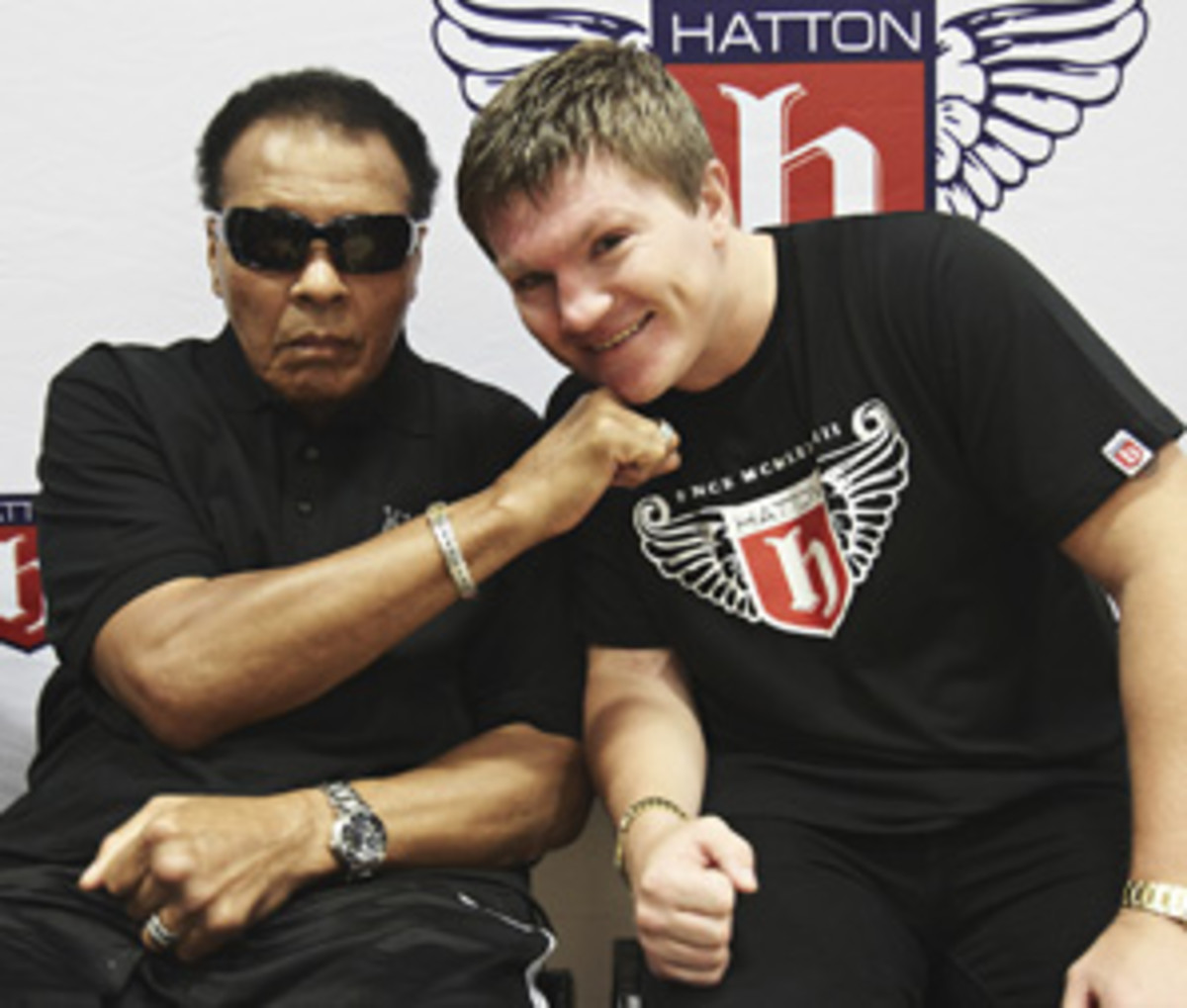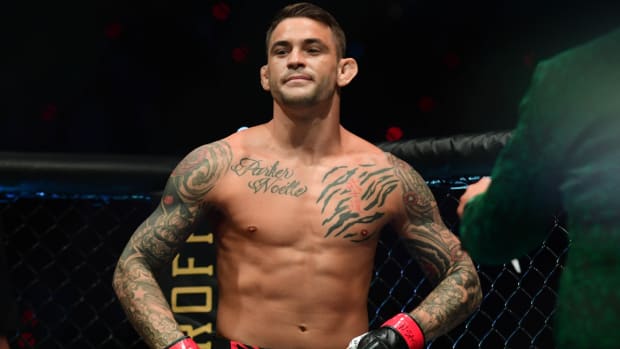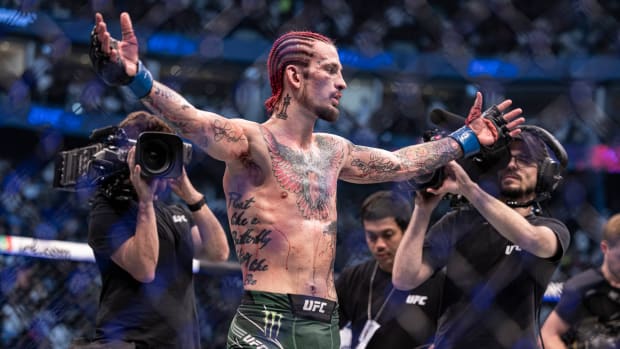As boxing fades, Ali still shines
Muhammad Ali flew to England last week to make appearances in soccer stadiums. He said it would probably be his "last time" in the UK. He can barely move on his own now. One London newspaper called he, who was once a butterfly, "little more than a zombie," and a great many people find it as grotesque as it is sad that the old champ continues to make personal appearances.
Maybe it would've been best if our last image of him had been in 1996, when he appeared out of nowhere and -- already shaking terribly from Parkinson's disease -- still managed to light the Olympic flame. There was nobility to that scene, as if once more he'd gotten off the canvas, managed somehow to win another fight. But Ali wouldn't retire from the ring when he should have, and now he refuses to comfort us and slip away from public view. Perhaps there's a bolder statement in that, that the man who once so immodestly enjoyed standing before us, the laird of his realm, proclaiming his beauty to the heavens, is now unafraid to let us see him when his great body is slumped, in shambles.
But might we be too tender with our memories? The athlete dying young has always seemed so shocking, so unfair, but I suspect that it upsets us even more to actually see our heroes, those physical marvels, grown old and infirm, as vulnerable to age and disease as we ordinary folk are. We want to remember the paragon, not the mere human.
Ah, but in contradict ion, Ali's wife, Lonnie, speaks for her husband, saying that for as long as he can manage to travel and make silent appearances, it "is not just his living, it is his life." There must, for him, be as much in satisfaction as in remuneration that he can still command up to $100,000 just for showing up.
The busted old pug was long a stereotype in our athletic cavalcade. That Ali is broken, but not broke is a certain revenge. And he, who was once so reviled by many Americans, has become quite a beloved figure in his dotage. Complicated as he has been, he won the fight for our affection, too.
I can so vividly remember, a few years ago, when a photographer posed him before the Vietnam monument in Washington. I thought that was insane. Who, after all, was more identified with opposition to that war? But when the people there, searching for the names of their loved ones who had died for what Ali opposed -- when they spotted him, they rushed to him, even handed me their little cameras to take snapshots with him. They embraced him. It was dear.
Even as boxing fades to the fringes, Muhammad Ali still retains some kind of hold on us. If he yet wants to present his present, lesser self to us, it is not for us to feel pity for him.
VAULT: SI covers of Muhammad Ali






